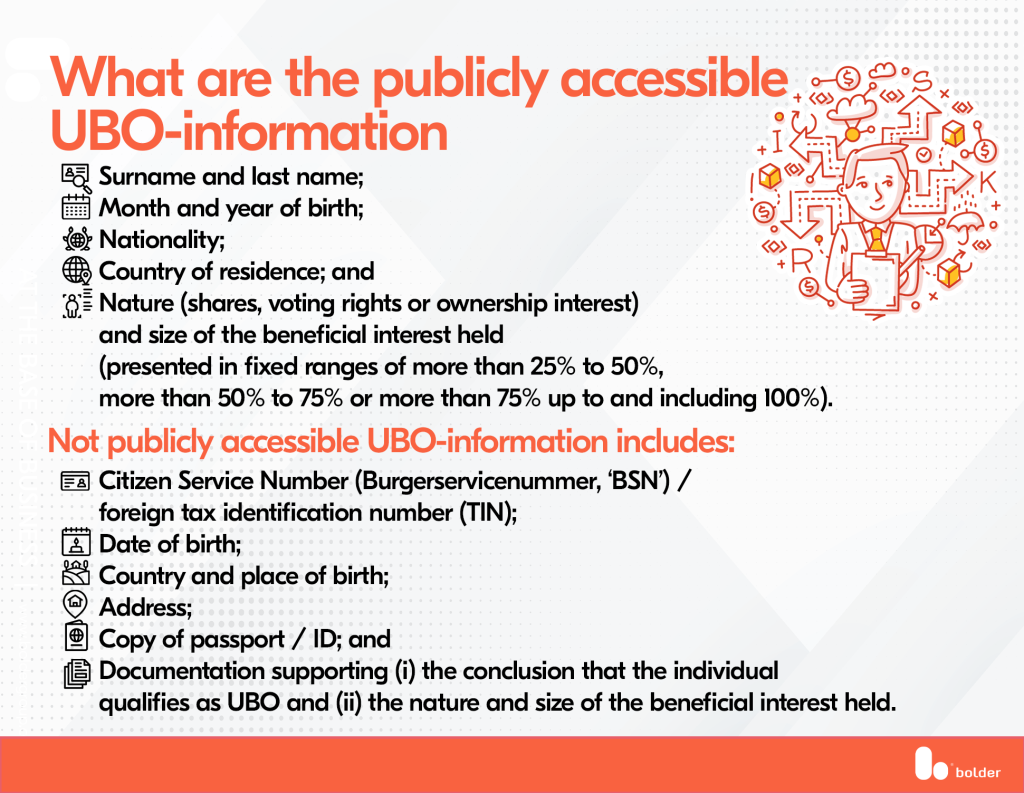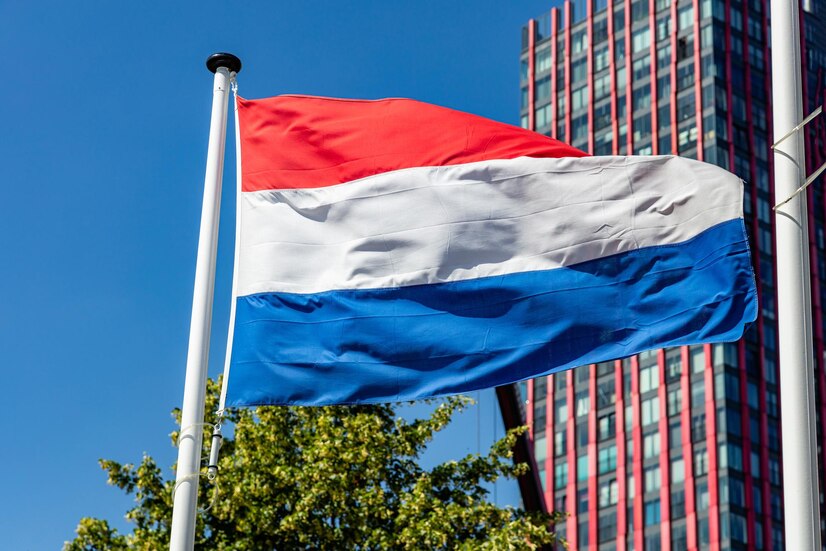UBO register in the Netherlands: An overview
DISCLAIMER: This post was last modified on 13 May 2024. Some information in this article may not be updated.
In a letter published by the Dutch Minister of Finance in April 2024, the minister provided an update on the Dutch Register of Ultimate Beneficial Owners (the UBO register). Around 80 per cent of companies and other legal entities had registered with the UBO as of 01 March 2024.
Currently, a natural person who owns more than 25 per cent of shares and voting rights of a company or a legal entity qualifies as a UBO. However, a change has been proposed to the UBO definition (threshold). This threshold is suggested to be lowered to at least 25 per cent, allowing natural persons to also be considered UBOs provided they have exactly 25 per cent of the ownership or voting rights.
UBO registration in the Netherlands
The UBO register was established by the Netherlands Chamber of Commerce KVK to oversee the UBOs of Dutch organisations. Each EU member state is required to have a UBO register. It is linked to the Business Register, a Dutch Key Register managed by KVK.
Furthermore, the UBO register aims to combat money laundering and terrorist financing. Financial institutions, for example, must check the UBO register to determine who an organisation’s UBO is before conducting a sales transaction or entering into a business agreement. Law enforcement can also monitor illegal activity including tax evasion, money laundering and fraud with the help of the UBO register.

For foreign companies, the ultimate beneficial owners of foreign corporations with only branch offices in the Netherlands do not have to register there. An Ltd. or GmbH should file their UBOs with the local UBO registry.


The UBO register must have at least one UBO entered by each organisation that must register. Registering requires authorisation from a signatory inside an organisation. When new businesses register with the Chamber of Commerce or a civil-law notary, they must also register as UBOs.
Changing the UBO
A change in UBO must also be reported to the Chamber of Commerce. This can be done by changing the data in the UBO Register or by de-registering the UBO within a week (7 days) of any changes.
Obtaining access to the UBO register
According to its 24 April 2024 press release, the European Parliament has approved a set of laws that expands the EU’s toolkit for combating money laundering and terrorist financing.
The new laws confirm that beneficial ownership information held in national registries and connected at the EU level will be accessible to anyone with a legitimate interest, including journalists, media professionals, civil society organisations, competent authorities and supervisory bodies, in addition to certain Dutch government authorities and financial regulators. The registries will contain not only current information but also data from at least five years ago.
Starting 01 June 2024, a company can request a certified extract from the UBO register. The company may use this extract as proof of its UBO registration to any party or relationship that has to conduct KYC due diligence until that party or relationship has regained access to the UBO register.
Our solutions
Transparency surrounding beneficial ownership will increase as the financial landscape evolves. Businesses must disclose and, if necessary, revamp ownership arrangements to comply with the new regulations and avoid severe penalties.
As part of our due diligence service, our experts from 18 major jurisdictions around the globe, particularly our offices in the EU, can help clients from various industries with their UBO registration needs.
Get in touch with our experts today to learn more about our business support services and solutions for regulatory compliance.
Bolder Group does not provide financial, tax or legal advice and the information contained herein is meant for general information purposes only. We strongly recommend that before acting on any of the information contained herein, readers should consult with their professional advisers. The Bolder Group accepts no liability for any errors or omissions in the information, or the consequences resulting from any action taken by a reader based on the information provided herein.
Bolder Group refers to the global network of independent subsidiaries of Bolder Group Holding BV. Bolder Group Holding BV provides no client services. Such services are provided solely by the independent companies within the Bolder Group which are each legally distinct and separate entities and have no authority (actual, apparent, implied or otherwise) to obligate or bind Bolder Group Holding BV in any manner whatsoever. The operations of the Bolder Group are conducted independently and have no affiliation with third party financial, tax or legal advisory firms or corporations.
